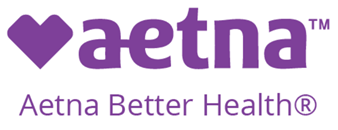During October, we observe Breast Cancer Awareness Month, when communities join together to support life-saving screenings and connection to care. For Community Health Centers across the country, that commitment extends far beyond their facility walls as they cover long distances to ensure the residents of their states have access to essential health services—no matter where they live.
Reaching patients where they are also requires nimble use of limited resources and cultivation of creative partnerships. Nevada’s mobile mammography unit (the “Mammovan”) demonstrates how health centers will continue to cross barriers to care to serve new patients—and save lives.
Mobile Mammography Services Reach Throughout Rural Nevada
Brenda Robinson in Nevada had lived with a lump in her breast for two years before she finally got access to care.
A previous doctor had dismissed her concerns about a lump in her breast, telling her it was probably an infection. She was unsure how to proceed—until she saw a promotion for Nevada Health Centers’ Mammovan on her TV screen.
“It was right there on my side of town,” Robinson recalled in a video released by Nevada Health Centers. “I didn’t have any excuses anymore. And they didn’t even require insurance, although I had it.”
She climbed aboard one Saturday. By Tuesday, Rhonda Johnson, the Mammovan program manager, had called her back with her results and connected her to follow-up care. Her diagnosis was stage two breast cancer that had already spread to her lymph nodes. Brenda began chemotherapy treatment immediately.
Remembering the compassionate way Johnson “never stopped calling to check on” her, Robinson said, “That kind of community—it’s been a blessing.”
Nevada Health Centers launched the Mammovan 25 years ago as an innovative way to solve the challenge of how to deliver breast cancer screenings across a vast, sparsely populated state where women often live hours from the nearest medical facility.
The Mammovan travels across the state from Las Vegas to Reno, a seven-hour trip, and on to Elko, another four hours, crisscrossing deserts and mountains to reach women in rural communities, Native American populations, and those experiencing homelessness who might otherwise never get screened.
“We want every woman 40 and older to have access to breast cancer screening, no matter her income, insurance status, or zip code,” said Lisa Dettling, Nevada Health Centers’ Executive Vice President of Ancillary Services, who has directed mobile operations for more than a decade.
Meeting People Where They Are
The impact: nearly 3,000 women screened annually who likely wouldn’t be otherwise. For Brenda, her caseworker, Sharlo stayed in touch for years, transforming what began as small talk about astrology into steady support through cancer treatment and recovery. Donor support has been critical, says Dettling, allowing Nevada Health Centers to staff the Mammovan full-time and accept all patients regardless of insurance—something not all mobile mammography programs can do.
Leveraging widespread community backing for breast cancer screenings, Nevada Health Centers’ Mammovan has worked to cultivate multiple funding sources to ensure the program’s long-term survival, including state support, philanthropic contributions, partnerships with charities, and the fundraising campaign connected to Nevada’s pink ribbon license plates, which generates a donation of $25 per license plate purchase and $21 per renewal and raises roughly $100,000 yearly.
Beyond mammograms, the Mammovan team provides patient education and navigation services, helping women connect to follow-up care when needed. Two full-time caseworkers follow up with patients needing additional tests, navigating the financial concerns that often loom larger than the diagnosis itself. This integration of screening, education, and care coordination reflects health centers’ commitment to meeting people where they are—both literally and in their health journeys.
“You get this result, and the first thought isn’t ‘I have cancer,’ it is ‘how am I going to pay for this,'” said Rhonda, who manages the Mammovan. “We don’t want them to put off additional testing and run in fear.”
The team has also partnered strategically with sports organizations, churches, beauty salons, and other community organizations to increase screen rates among Black women, whose breast cancer mortality rates are disproportionately high. Those partnerships have helped boost screening rates among Black women from 6 to 11 percent.
“When we meet women where they already are—places they trust—that’s when the real change happens,” Dettling said.
As Breast Cancer Awareness Month reminds communities of the importance of early detection, the Mammovan’s 25-year legacy stands as proof: innovative partnerships save lives when care goes mobile.
Over the years, Nevada Health Centers has built on its success in delivering mobile care with the addition of four mobile units, each with their own mission and service area, that help to fill urgent needs for health services such as pediatric dental care and medical care for homeless and trafficked youth.





